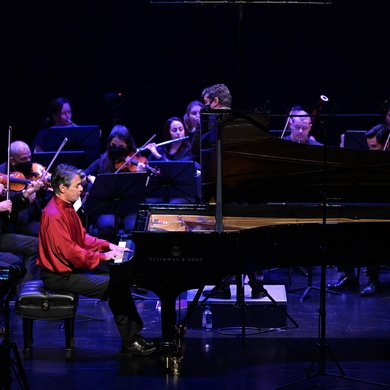“Meyerbeer’s most popular opera, Les Huguenots, was repeated at the Metropolitan Opera House last evening,” the critic W. J. Henderson reported in early February 1915. “Since the work is now given in Italian the natural course would be to call it Gli Ugonotti […], but no one really cares what it is called, since Les Huguenots by any other name requires a star cast with Mr. [Enrico] Caruso as the central sun.” Oddly enough, the work was never performed at the Met again. And any modern-day revival anywhere is a red-letter occasion. The obligatory love intrigue is woven into a tapestry of 16th-century religious warfare. The curtain falls on the St. Bartholomew’s Day Massacre of 1572, when French Catholics slaughtered French Protestants by the thousands. The tenor in Brussels is the Italian Enea Scala. If, as the Latins said, nomen est omen, here is surely a name to conjure with, evoking the hero of Aeneid on the one hand and Italy’s greatest opera house on the other. —Matthew Gurewitsch




